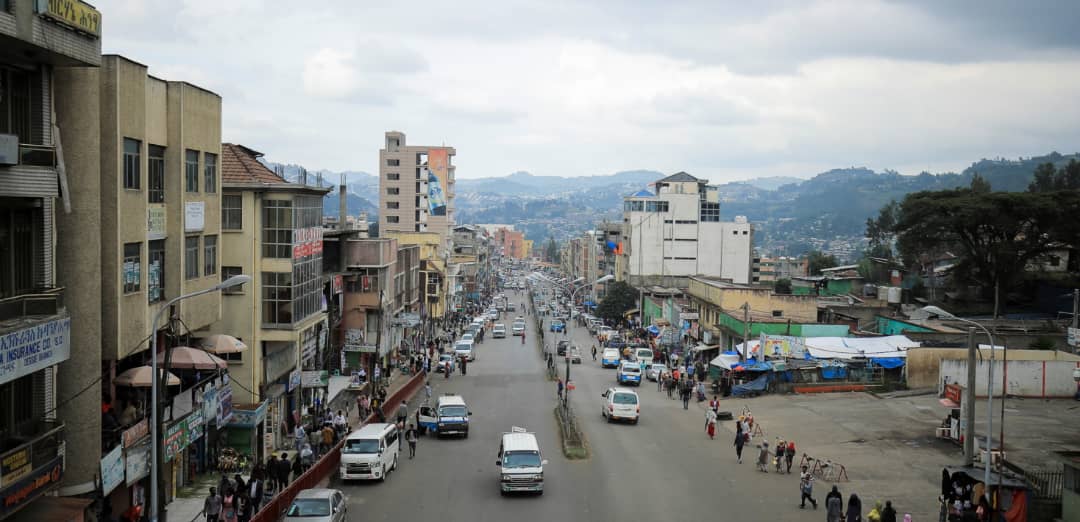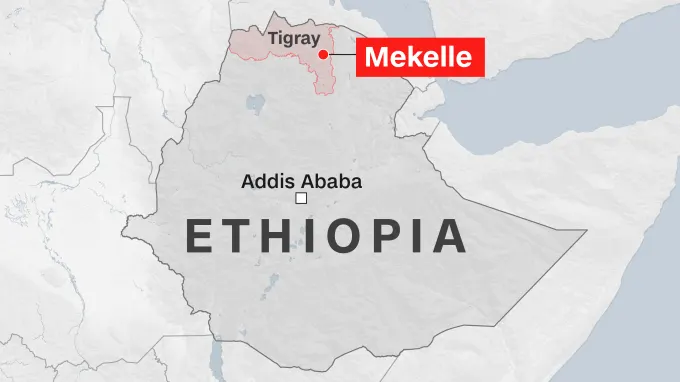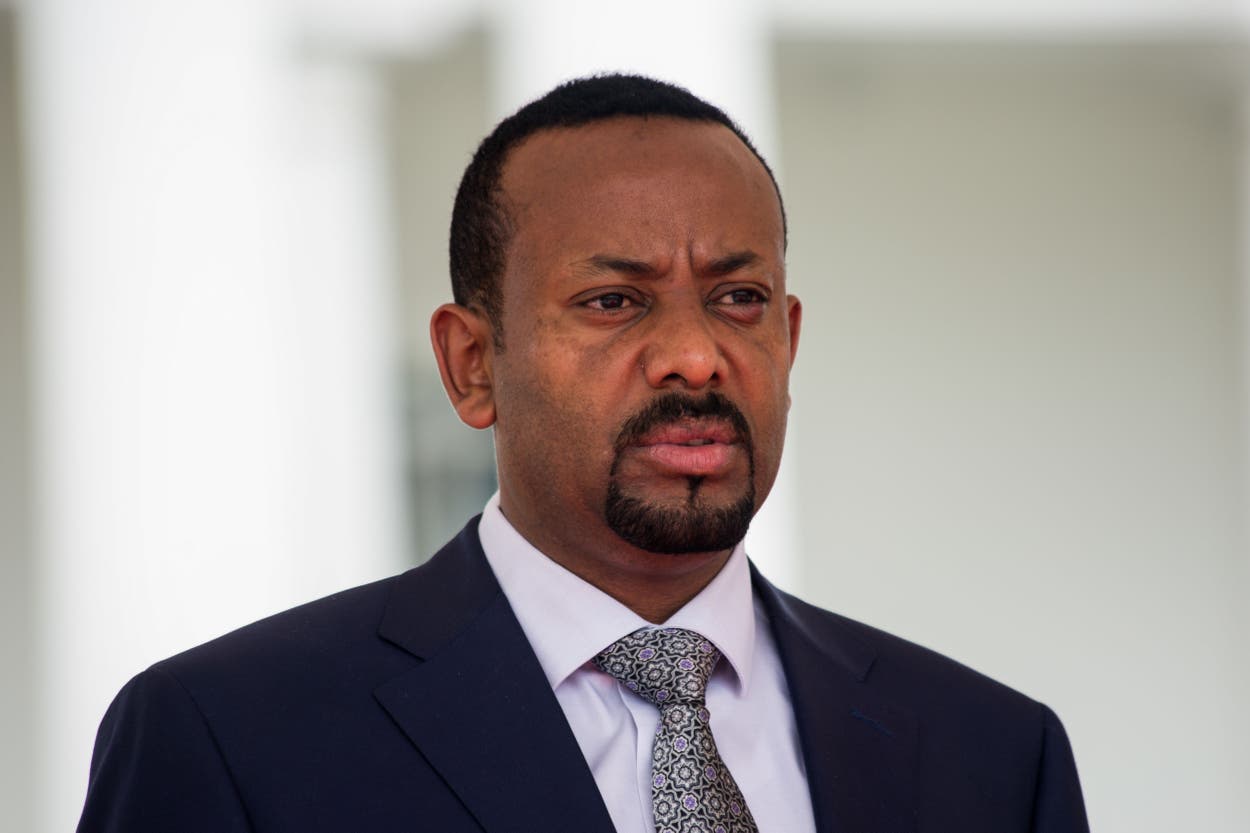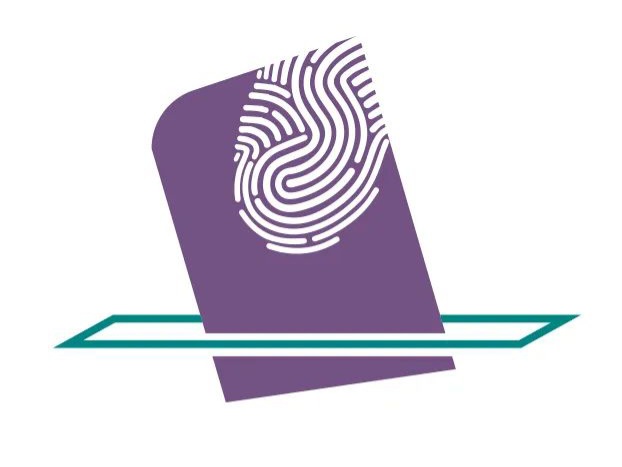By TESFA-ALEM TEKLE
Amnesty International has issued a stark warning regarding the Ethiopian government’s continued human rights abuses, detailing a disturbing pattern of arbitrary detentions targeting thousands of civilians in Ethiopia’s Amhara region.
Since the escalation of conflict between the federal government and the Amhara-based Fano militia in April 2023, reports have surfaced of mass arrests, widespread abuse, and unlawful confinement of civilians in makeshift detention camps across the region.
Amnesty’s latest report, published on November 6, 2024, calls for an immediate end to these wide spread detentions, which the organization condemns as violations of both national and international human rights laws.
The Amhara region, home to approximately 23 million people, has been embroiled in a violent conflict between the Ethiopian federal government and Fano, a self-defense militia representing the Amhara ethnic group.
In late September 2024, the Ethiopian National Defense Force (ENDF), along with regional security forces, launched a large-scale operation in the region, which, according to Amnesty, has led to the mass detention of civilians, many of whom were arrested without charge or legal recourse.
Amnesty International’s report highlights the conditions in four major detention sites located in Dangla, Seraba (Chilga), Chorisa (Kombolcha), and Shewa Robit.
Interviews with former detainees, their families, and independent sources within the judicial system reveal that these detention facilities are overcrowded and poorly equipped, with new metal structures being hastily erected to hold the increasing number of detainees.
At the Dangla detention camp alone, former detainees confirm seeing as many as 1,600 people confined to a single site.
One individual who had been held at the Dangla camp described the harrowing experience of being arrested:
“They broke into my home with a rifle, arrested me in front of my children, and gave no explanation.I was helpless”
Many others interviewed for the report described similar experiences of being detained without cause, often in front of family members.
In addition to civilians, members of the judicial community have also been targeted by authorities. Sources within the Amhara judiciary revealed that nine judges and several prosecutors remain detained, many without any formal charges or court appearances.
The Amhara Region Judges’ Association has condemned the detentions, noting that this wave of arrests is part of a broader crackdown on individuals who resist government interference in legal proceedings.
Amnesty also reported that academics have been swept up in the government’s broader assault on dissent.
Eleven staff members from Wollo University were detained for over a month before being brought to court earlier this week, while journalists and human rights defenders have faced increasing harassment and intimidation from security forces.
In a separate but related report, the Ethiopian Human Rights Commission (EHRC) documented at least 52 cases of arbitrary detentions and enforced disappearances between July 2023 and October 2024 in both the Amhara and Oromia regions, as well as in Addis Abeba.
These cases involve individuals being taken from their homes or workplaces by security forces in unmarked vehicles, often in front of witnesses, and held without any legal justification.
Amnesty International’s Regional Director for East and Southern Africa, Tigere Chagutah, decried the ongoing abuses, stating: “Ethiopia has entered a new era of disregard for national, regional, and international human rights obligations.
These arbitrary mass detentions have become a routine tactic used by the government to silence peaceful dissent under the guise of national security.”
The government’s ongoing “law enforcement operations” in Amhara, which are justified by the authorities as efforts to restore peace, have continued unabated since October 2024.
However, Amnesty warns that the failure to address these grave human rights violations risks further entrenching cycles of abuse across the country.
In his recent address to parliament on October 31, Prime Minister Abiy Ahmed acknowledged that the government has continued to engage in talks with some factions of the armed groups operating in Amhara and Oromia.
However, Amnesty has expressed deep concern over the broader crackdown on those challenging the government’s actions, particularly in relation to its interference in the judiciary.
Amnesty International has called on the Ethiopian government to end the arbitrary detentions, to allow independent monitoring of the detention sites, and to guarantee that detainees have access to legal representation.
The organization also urged regional and global human rights bodies to pressure Ethiopian authorities to halt the systematic abuse and to uphold the country’s human rights obligations.
Failure to take action, Chagutah warned, would embolden the government, perpetuating a cycle of impunity and human rights violations that could spread beyond the Amhara region and destabilize Ethiopia further.
As the situation continues to evolve, international attention on the human rights situation in Ethiopia remains critical.
Amnesty’s report urges the global community to hold Ethiopia accountable for the ongoing violations in a region already plagued by violent conflict.



